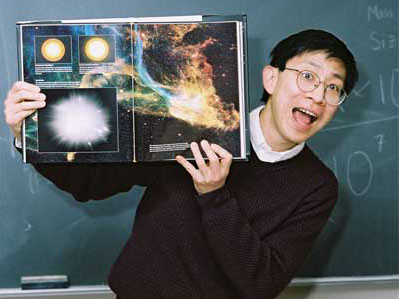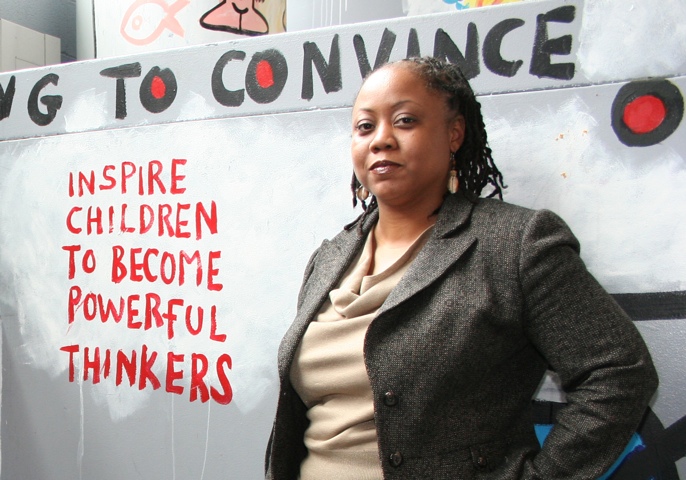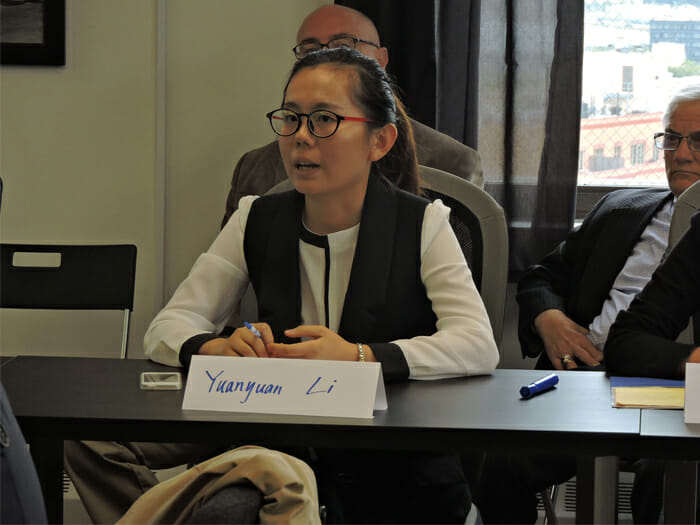The students who are enrolled in the Macaulay Honors College seminar “Science and Technology in New York” had some special visitors recently, as they attended class in Manhattan, New York Times reporter Marc Santora and photographer Ruby Washington observed their class and followed them on a side trip to the American Museum of Natural History. Santora subsequently published an article in The Times on the Macaulay Honors College and its mission.
The seminar’s instructor, Charles Liu, who is an Assistant Professor of Engineering Science and Physics, and no stranger to media coverage, notes that Santora and Washington “were very respectful of the learning environment. They stood out of the way. They asked questions not during class time, but in a very inquisitive and respectful polite way.” Liu continued, “I welcome the opportunity to share what we have going on in the classroom, in the learning environment, in the things that we’re trying to do to bring knowledge to people.”
Liu explains that his seminar, also known as “Seminar 3,” is a cross-campus course that is required of all Macaulay Honors College students. “The idea of the course is to help the students learn the difference between scientific knowledge and nonscientific knowledge, and learn how to obtain, conduct, process, and understand scientific knowledge and its applications.” Although the seminar’s focus is on science, Liu adds that “it doesn’t take away from the importance of nonscientific knowledge. Nonscientific knowledge—history, art, literature, all the humanities—are extremely important and valuable also; they shape all of our lives just as much. So what “Seminar 3″ does is to help these students—there are about 20 of them in a section—to understand what science is and what technology is, to know the difference between science and nonscientific knowledge and to be able to do that science.”
As far as the curriculum is concerned, Liu notes that “we look first at scientists who have written books for nonscientists, so you can see what they’re trying to convey and how they try to convey it. Then we look at scientific journal articles, at scientific research…so they can see how the professionals do it, how scientists conduct it on the professional level, and then all through this time, the students are setting up their own scientific research projects. They conduct them, so at the end of the semester, they produce original scientific knowledge following a well-understood scientific research paradigm and then they present it at a symposium at the end of the semester.”
One of the most significant aspects of “Seminar 3” is its cross-campus aspect, says Liu, as students from all seven CUNY senior Honors College campuses take part. “The combination of the subject matter and the opportunity to interact academically with other CUNY Honors College students from other campuses is what makes this particular section especially interesting. The students, when they finish at the end of every semester, invariably consider the opportunity to interact with students from other campuses one of the most significant and rewarding parts of the course.”
Deborah Popper, Professor of Geography and Director of the Macaulay Honors College at CSI comments on Macaulay’s impact and the attention that it continues to draw from the community and the media, “The Macaulay Honors College was begun with great ambition but also a bit of trepidation as to whether it would deliver on its promise to provide an exceptional and distinctive education to New York City’s finest students. What we’ve seen is that it is meeting expectations, and, if anything, the ambition is growing for what it and what its students can do.”
The Macaulay Honors College at CSI is home to a select group of University Scholars, who are highly motivated students enrolled in a special Honors curriculum of innovative and challenging courses. Macaulay Honors College classes of 20 or fewer students feature field trips as well as independent and collaborative research, and other creative activities, which students may present at undergraduate research conferences. In recent years Macaulay Honors College classes have visited such destinations as West Point, the National Museum of the American Indian, and the Tibetan Museum.
At CSI, Macaulay Honors Seminars are taught by some of CSI’s prominent faculty. CSI’s Macaulay Honors College staff also includes a professional counselor, who offers guidance and support as University Scholars adjust to college life, choose their majors, and make other important decisions. CSI’s Macaulay Honors College houses a student lounge and a state-of-the-art computer lab. Both of these facilities provide comfortable spaces in which Macaulay Honors College students can work together, socialize, and meet informally with faculty.
















